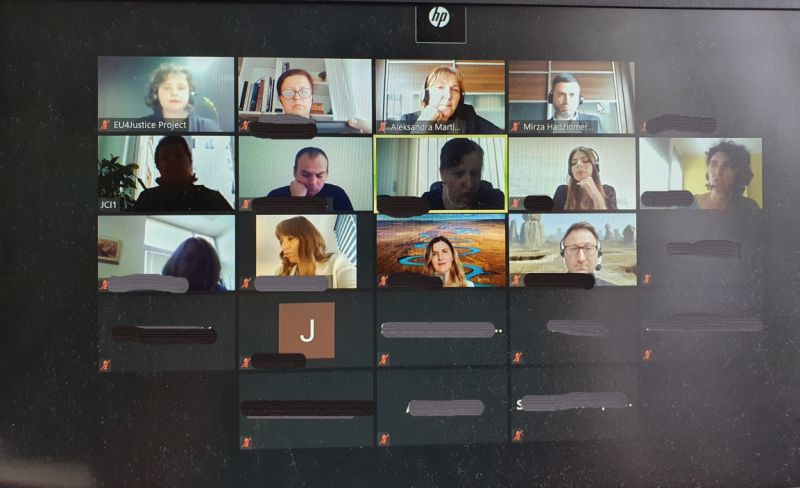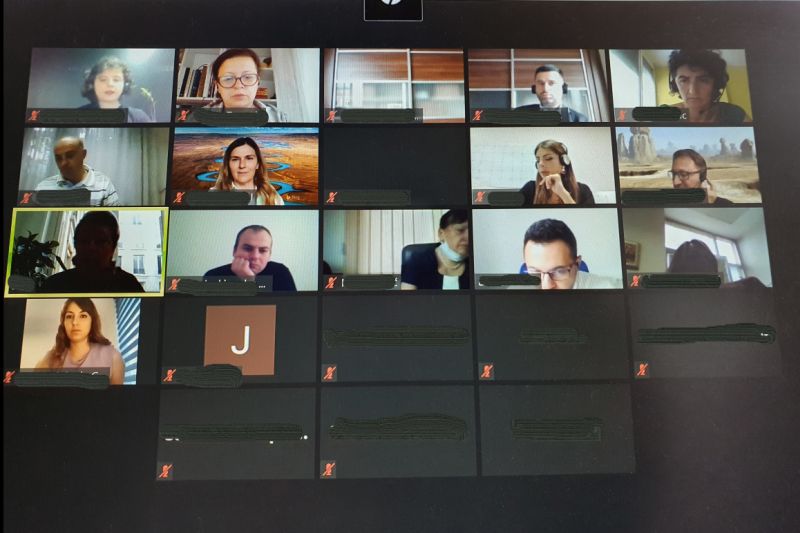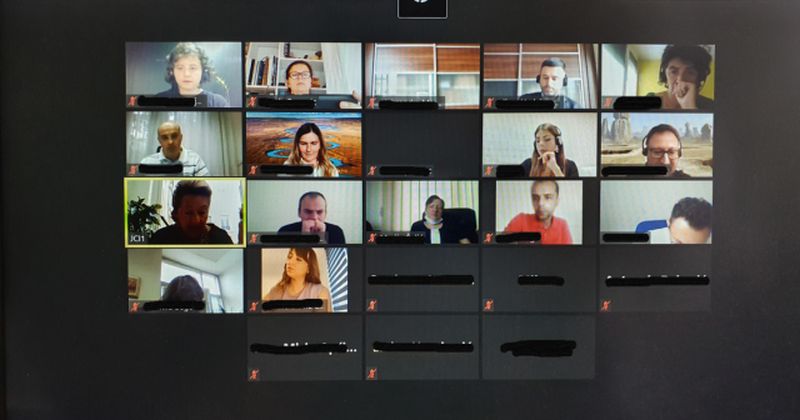Online exchange on Ethics and Integrity
On 7 July 2020 in cooperation with CEST FBIH, EU4Justice organised an exchange of views on “Ways to Share the Culture of Ethics and Integrity within the Judiciary”. The objective was to exchange good practices on the ways of sharing the culture of ethics and integrity within the judiciary.
Ms Isabelle Arnal, the Team Leader stated that project’s position is that each of one of the actors in the judiciary must learn and update his/her knowledge on the matter regularly based on a set of appropriate tools in place at the levels of the HJPC, Office of the Disciplinary Counsel, Courts and Prosecutors’ Offices.
The opening speaker was EU Expert Ms Sylvie Ceccaldi. She focused on the following points:
- The culture of ethics and integrity needs to be disseminated throughout the judiciary;
- The case law on ethics and integrity needs to be shared regularly with judges, prosecutors, legal associates and investigators at the level of the Courts and prosecutors’ offices
- Representatives of the Office of the Disciplinary Counsel and members of the disciplinary members should visit courts and prosecutors’ office to promote the idea of ethics and integrity throughout the example of the case law; and
- Court presidents and chief prosecutors should have an active role in the matters of ethics and integrity.
The actions should be conducted through training of the persons that will be actors inside of the judiciary, but also setting the appropriate tools in the Courts and Prosecutors Offices
Presentation of Mr Hadžiomerović, Deputy Chief Disciplinary Counsel (ODC) focused on the ongoing challenges and the issues of continuous interest and concern regarding the matters of ethics and integrity in the judiciary. He addressed key points concerning subjects such as:
- The most common disciplinary reports to the ODC concern the judges’ rulings, i.e. court decisions, and are filed by dissatisfied parties, which is not itself a disciplinary offence as judges by law cannot be held accountable for their opinions and decisions made in cases they are handling,
- A so-called “grey area”, i.e. the behaviours of judiciary office holders which are not disciplinary offences but can damage the integrity of a particular judge as well as of the whole profession and the judiciary due to the perception of the public (e.g. personal ties with parties to the procedure, having relatives employed in the judiciary, etc.); transparency concerning such situations is needed and strongly recommended. Public appearances and statements of judiciary office holders present a recurring issue of debate on the matters of ethics and integrity in the judiciary. Mr Hadžiomerović’s advice and guidelines for the judiciary office holders are to address the public only on certain issues of public interest and concern, preferably through professional associations of judges/prosecutors, and in line with the codes of ethics.
During her presentation, Ms Aleksandra Martinovic, Vice President of the Constitutional Court FBIH reminded the participants of fundamental international documents regarding the Principles of Judicial Conduct, independence of judges, the impartiality of judges. Ms Martinović presented case laws on matters of ethics and integrity from Croatia, Northern Macedonia, and Cyprus. Ms Martinović shared with participants self-assessment questions in the context of impartiality as well. In the end, she pointed out that judges and prosecutors should be aware that once they take a position, they are also accepting voluntarily all limitations this position brings, and that they are subject to public attention.
The event gathered 24 judges and legal associates from various judiciary institutions across Bosnia and Herzegovina.








